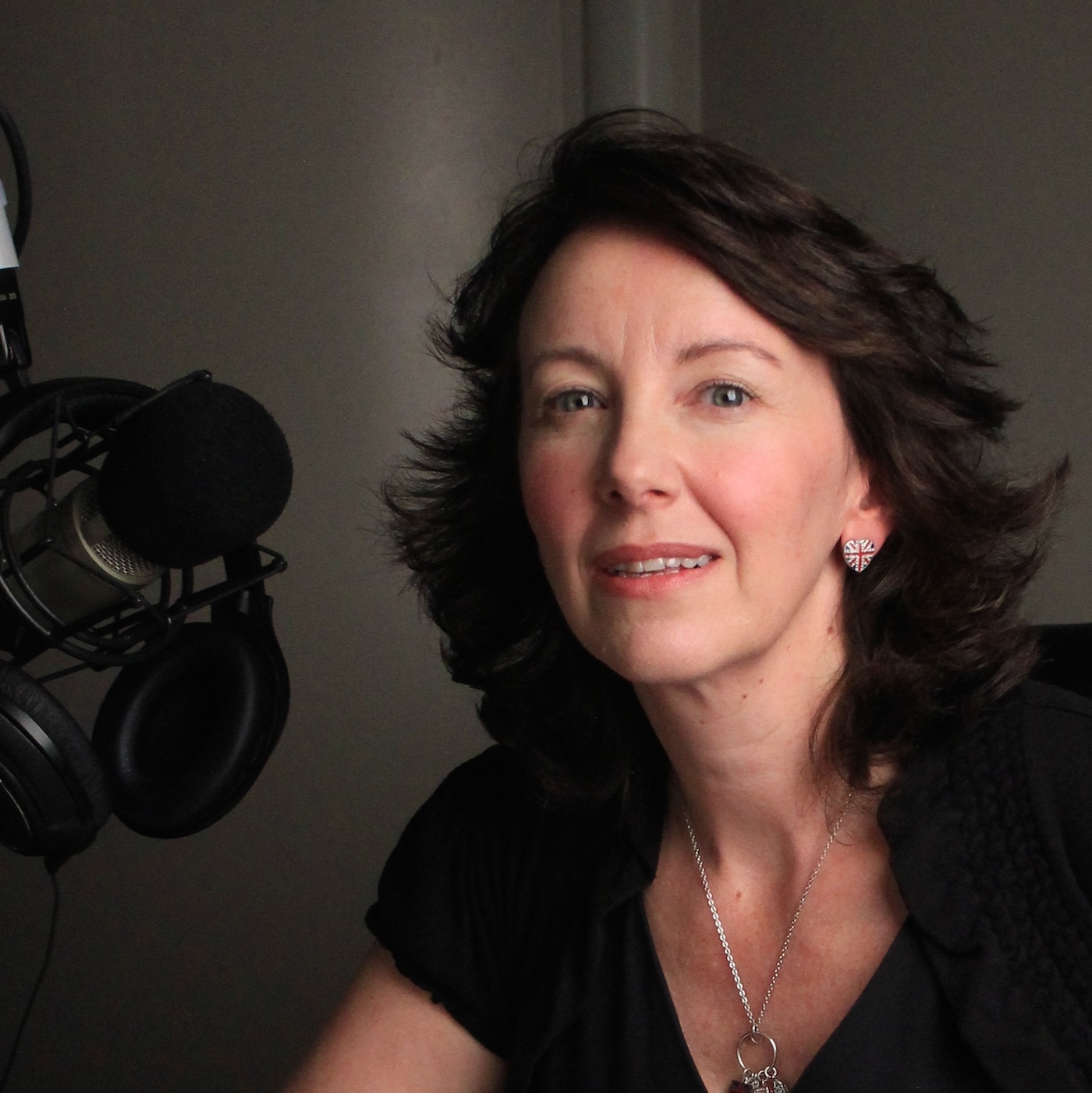
Episodes
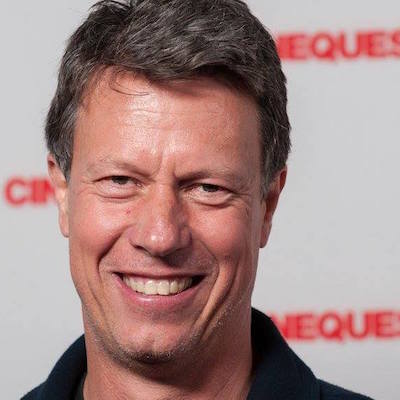
Tuesday Mar 29, 2016
Special Report: Arts Interview with Oscar-winning Director Gavin Hood
Tuesday Mar 29, 2016
Tuesday Mar 29, 2016
It's A Question Of Balance ® radio show balances the intellectual with the creative, exploring whether we have more in common than divides us through thought-provoking conversations - out and about with people on the street on different topics, and in the studio with inspiring guests from the arts. Balance is not a compromise. Balance is truth distilled from many places creating cohesive understanding.
Special Report for It’s A Question Of Balance: Ruth Copland talks to Academy-Award-winning director Gavin Hood on the red carpet at Cinequest 2016 before the premiere of his new film Eye In The Sky starring Helen Mirren, Alan Rickman, Aaron Paul and Barkhad Abdi. During the conversation, Ruth Copland and Gavin Hood discuss whether art can evoke change; Gavin Hood’s first experience of the power of art; why he likes to work in fiction rather than documentary format; themes that run through his work; and of course his new film Eye In The Sky.

Written by Guy Hibbert, Eye In The Sky stars Helen Mirren as Colonel Katherine Powell, a UK-based military officer in command of a top secret drone operation to capture terrorists in Kenya. Through remote surveillance and on-the-ground intel, Powell discovers the targets are planning a suicide bombing and the mission escalates from “capture” to “kill.” But as American pilot Steve Watts (Aaron Paul) is about to engage, a nine-year old girl enters the kill zone, triggering an international dispute reaching the highest levels of US and British government over the moral, political, and personal implications of modern warfare. Look out for Eye In The Sky in cinemas soon.
Gavin Hood is a filmmaker, screenwriter, director and actor best known for writing and directing Tsotsi (2005), which won the Academy Award for Best Foreign Language Film, and for directing X-Men Origins: Wolverine, and Ender’s Game.
*Featured photo by Mitchell Weinstock
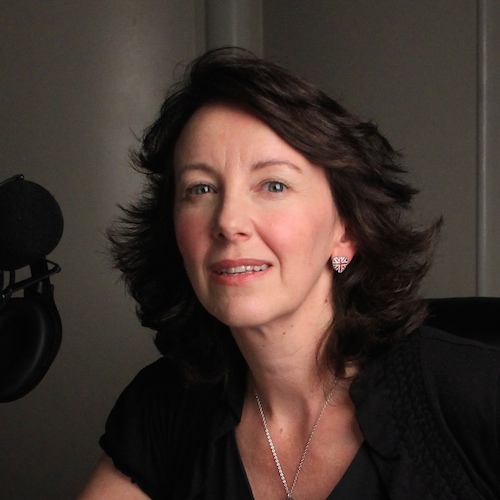
Monday Mar 28, 2016
Monday Mar 28, 2016
Broadcast on 26 March 2016 on KSCO AM 1080, KSCO 104.1 FM, KOMY AM 1340, and KSCO.com Live Stream.
It's A Question Of Balance radio show balances the intellectual with the creative, exploring whether we have more in common than divides us through thought-provoking conversations - out and about with people on the street on different topics, and in the studio with inspiring guests from the arts. Balance is not a compromise. Balance is truth distilled from many places creating cohesive understanding.
Check out podcasts of the different topics and arts guests at www.itsaquestionofbalance.com
Out And About – Conversations with People on the Street about Questions That Matter: Do We Need More Than One Word For Love?

This week we consider ‘Do We Need More Than One Word For Love?’ Human relationships are complex and come in many forms. We have feelings for others which differ depending on the unique circumstances. However, in the English language there is only one word to describe this: love. The Greeks had more than one word for love. They had a different word for each kind of love, about 30 in total to describe love in all its complexity. The main ones being agape - love of humanity; storge - family love; pragma - love which endures; philautia - the love we give ourselves, self-respect; philia - shared experience; ludus -playful affection; and eros - romantic and erotic love. In our society, by making love such an elevated grand concept that has to meet so many criteria to actually be called love, are we denying the expression or validation of the other kinds of love we feel? Would we love and connect more if we had more kinds of love on the table to choose from and feel comfortable expressing? Could we then talk about love in the context of politics or business, for example, without a cynical response? Would it help us form healthier and happier relationships in all areas of our life? What does it say about us and our culture that we have so many different words say for rain in the UK - or for different kinds of coffee - but only one word for love? Finally, Aristotle believed the basis of all love was that we first love ourselves. How important is self-love?
What do you think? For more info on the show and to hear past shows visitwww.itsaquestionofbalance.com
In Out And About we consider topics with local relevance and global significance. The idea is to get us thinking about the questions that affect us all - to stimulate new thinking, or clarify what we already feel. To hear how other people’s opinions may differ from or be similar to our own.
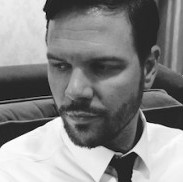
Sunday Mar 20, 2016
Sunday Mar 20, 2016
Broadcast on 19 March 2016 on KSCO AM 1080, KSCO 104.1 FM, KOMY AM 1340, and KSCO.com Live Stream.
It's A Question Of Balance ® radio show balances the intellectual with the creative, exploring whether we have more in common than divides us through thought-provoking conversations - out and about with people on the street on different topics, and in the studio with inspiring guests from the arts. Balance is not a compromise. Balance is truth distilled from many places creating cohesive understanding.
Check out podcasts of the different topics and arts guests at www.itsaquestionofbalance.com
Arts Interview: In-Depth Conversation with Jim Parrack
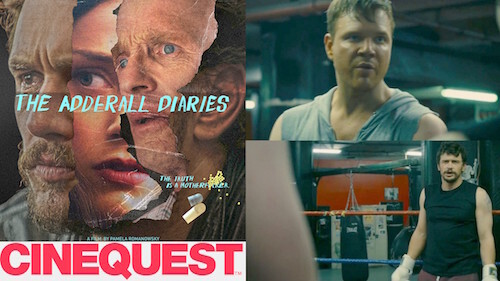
This week as her special guest from the arts Ruth Copland is pleased to be featuring an interview at the Cinequest Film Festival 2016 with actor Jim Parrack. Known for his starring roles in the series True Blood and in the military science fiction war film Battle: Los Angeles, Jim’s screen debut was in the 2008 drama film Annapolis. He made multiple guest appearances on TV shows such as Monk, Grey’s Anatomy, CSI: Crime Scene Investigation, and Criminal Minds before his role as Hoyt Fortenberry in the HBO series True Blood, in which he was one of the main starring cast for six seasons. In 2013, Jim starred in the drama film Child of God and the Spanish-American drama A Night In Old Mexico. He co-stars in the film Fury (2014); The Adderall Diaries (2016) with James Franco, Ed Harris, Amber Heard, and Christian Slater; and the soon-to-be released Suicide Squad. In 2014, Jim joined the Broadway cast of Of Mice and Men, playing the role of Slim. After studying at Playhouse West Los Angeles for 10 years and teaching there for four years, Jim moved to new York in 2014 to start the acting school Playhouse West Brooklyn Lab, of which he is the director. Playhouse West Brooklyn Lab is built on simple principles of hard work, respect, passion and service, and offers a 2-year program of study for the serious actor.
For more info and to hear previous shows visit www.itsaquestionofbalance.com

Sunday Mar 13, 2016
Sunday Mar 13, 2016
Broadcast on 12 March 2016 on KSCO AM 1080, KSCO 104.1 FM, KOMY AM 1340, and KSCO.com Live Stream.
It's A Question Of Balance radio show balances the intellectual with the creative, exploring whether we have more in common than divides us through thought-provoking conversations - out and about with people on the street on different topics, and in the studio with inspiring guests from the arts. Balance is not a compromise. Balance is truth distilled from many places creating cohesive understanding.
Check out podcasts of the different topics and arts guests at www.itsaquestionofbalance.com
Out And About – Conversations with People on the Street about Questions That Matter: Should We Have a Ratings System For Films?

This week we consider ‘Should We Have a Ratings System For Films?’ The show comes live from the Cinequest Film Festival 2016 in Silicon Valley, California. Ruth Copland talks to film-maker Selvamani Selvaraj, whose wonderful mood piece Nila is a Spotlight Film at the festival; Cinequest volunteers; and festival film-goers.
According to the US Classification and Rating Administration “Movie ratings provide parents with advance information about the content of movies to help them determine what movies are appropriate for their children at any age.” Are movie ratings necessary? And if so, do they achieve what they set out to accomplish? Other countries have more categories of ratings; the UK for example has U (universal, suitable for children 4 or older), PG (should not unsettle a child 8 or older), 12, 12A (must be accompanied by an adult), 15 (no one under 15), 18 (no one under 18), R18 (basically pornography, can only be shown at special cinemas or sold in sex shops). There is a big developmental difference between 13 and 18. With no rating between PG13 and R in America, are younger teens possibly seeing content they shouldn’t? Or conversely are older teens being shielded from content that could be appropriate for them? Would it be useful to have more ratings categories in America or are broad categories good enough? In the US, young children can see PG-13 and R-rated films if accompanied by their parents, unlike in other countries where the age ratings are strictly enforced. Should we aim to protect children from irresponsible adults by having enforced age ratings or is this interfering too much? Sex is censored much more strictly than violence in US cinema. What does this say about our society? With extreme sexual and violent content readily available on the internet are film ratings obsolete or do they still have a place to guide and inform?
What do you think? For more info on the show and to hear past shows visit www.itsaquestionofbalance.com
In Out And About we consider topics with local relevance and global significance. The idea is to get us thinking about the questions that affect us all - to stimulate new thinking, or clarify what we already feel. To hear how other people’s opinions may differ from or be similar to our own.
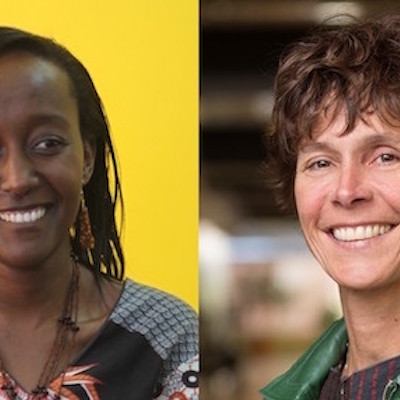
Tuesday Mar 08, 2016
Tuesday Mar 08, 2016
Broadcast on 5 March 2016 on KSCO AM 1080, KSCO 104.1 FM, KOMY AM 1340, and KSCO.com Live Stream.
It's A Question Of Balance ® radio show balances the intellectual with the creative, exploring whether we have more in common than divides us through thought-provoking conversations - out and about with people on the street on different topics, and in the studio with inspiring guests from the arts. Balance is not a compromise. Balance is truth distilled from many places creating cohesive understanding.
Check out podcasts of the different topics and arts guests at www.itsaquestionofbalance.com
Arts Interview: In-Depth Arts Conversation with Liz Miller and Mary Kiio

This week as her special guests from the arts Ruth Copland is pleased to be interviewing two of the directors of the documentary Hands On - award-winning film-maker Liz Miller in Montreal and first-time director Mary Kiio in Kenya. A collaborative project of the International Association of Women In Radio and Television (IAWRT), Hands On profiles five women from four continents tackling climate change through policy, protest, education and innovation. Hands On was broadcast on television in India and Kenya and screened at the climate talks in Paris.
Film-maker Liz Miller is a professor in Communication Studies at Concordia University in Montreal and an award winning documentary maker whose films and transmedia projects offer new and critical perspectives on gender, social movements and media. Her films, web initiatives, and media campaigns on such issues as water privatization, gender violence, and immigration have won numerous awards and been used in educational curricula around the world. Liz Miller teaches courses in media production, the politics of food and film, methods in research-creation, Latin American Film and more, and having lived in Central and South America collaborates with groups in the region providing training to human rights, labor, and women’s organizations in media production, digital storytelling, and media advocacy campaigns. Liz Miller is a board member of Cinema Politica and is an active member of the International Association of Women In Radio and Television (IAWRT) having served on the board for six years.
First-time director Mary Kiio from Kenya is committed to telling stories on democracy and governance issues to keep citizens informed on the change they can bring to their society. She is the Founder and Lead Consultant at Roshani Consultancy Services and is a broadcast media professional with 15 years experience working in and with various media houses and media development organizations. Mary Kiio is a trainer, facilitator, moderator and mentor with extensive experience in the areas of Online Safety for women, Conflict Sensitive Journalism, Democracy and Governance issues, Election Reporting, health journalism, Humanitarian media and disaster management, Road Safety, and Child Rights. Mary Kiio is also a freelance journalist and has authored a children's book.
For more info and to hear previous shows visit www.itsaquestionofbalance.com

Sunday Feb 28, 2016
Sunday Feb 28, 2016
Broadcast on 27 February 2016 on KSCO AM 1080, KSCO 104.1 FM, KOMY AM 1340, and KSCO.com Live Stream.
It's A Question Of Balance radio show balances the intellectual with the creative, exploring whether we have more in common than divides us through thought-provoking conversations - out and about with people on the street on different topics, and in the studio with inspiring guests from the arts. Balance is not a compromise. Balance is truth distilled from many places creating cohesive understanding.
Check out podcasts of the different topics and arts guests at www.itsaquestionofbalance.com
Out And About – Conversations with People on the Street about Questions That Matter: Spirituality and Religion: What’s the Difference?

This week we consider ‘Spirituality and Religion: What’s the Difference?’ Point of View for the BBC says one in three Americans define themselves as spiritual but not religious. American sociologists Robert Putnam and David Campbell talk about "Nones" - people who belong to no religion but still believe in God. The Pew Research Religious Landscape Survey analysis in 2015 states “the number of religiously unaffiliated adults has increased by roughly 19 million since 2007. There are now approximately 56 million religiously unaffiliated adults in the U.S”. Yet “The share of U.S. adults who say they believe in God…[is] still remarkably high by comparison with other advanced industrial countries…at 89% and roughly six-in-ten adults now say they feel a deep sense of spiritual peace and well-being at least once a week, up 7 percentage points since 2007…and 46% of adults say they feel a deep sense of wonder about the universe on a weekly basis, also up sharply since 2007.” What is the difference between spirituality and religion? How do you define spirituality? Why is religious affiliation declining? The Pew survey found that about half of U.S. adults express reservations about the conduct of religious institutions, saying they are too concerned with money, power, and rules, and too involved with politics. Perhaps this could this be an explanation of the decline in religious affiliation even though most Americans agree that religious organizations perform positive functions in society. There are so many different religions and versions of each religion, might promoting spirituality over religion be helpful to break down barriers and connect people?
What do you think? For more info on the show and to hear past shows visit www.itsaquestionofbalance.com
In Out And About we consider topics with local relevance and global significance. The idea is to get us thinking about the questions that affect us all - to stimulate new thinking, or clarify what we already feel. To hear how other people’s opinions may differ from or be similar to our own.
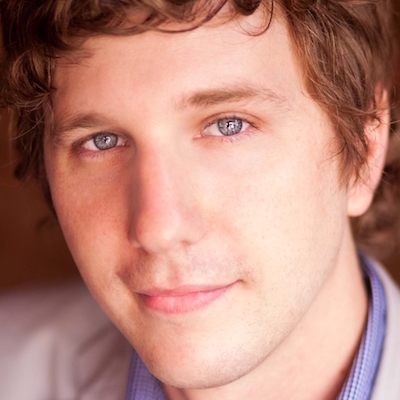
Sunday Feb 21, 2016
Sunday Feb 21, 2016
Broadcast on 20 February 2016 on KSCO AM 1080, KSCO 104.1 FM, KOMY AM 1340, and KSCO.com Live Stream.
It's A Question Of Balance® radio show balances the intellectual with the creative, exploring whether we have more in common than divides us through thought-provoking conversations - out and about with people on the street on different topics, and in the studio with inspiring guests from the arts. Balance is not a compromise. Balance is truth distilled from many places creating cohesive understanding.
Check out podcasts of the different topics and arts guests at www.itsaquestionofbalance.com
In-Depth Arts Interview with Kristopher Jansma
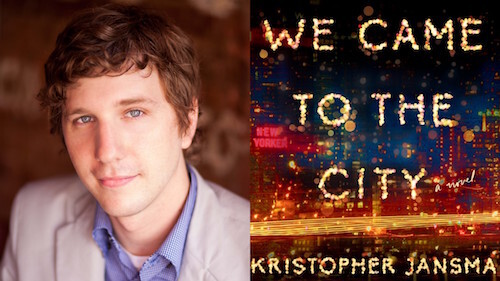
This week as her special guest from the arts Ruth Copland is pleased to be interviewing Kristopher Jansma - award-winning, best-selling author. Kristopher’s first novel The Unchangeable spots of Leopards published by Viking/Penguin in 2013 was critically acclaimed and a success with readers. Described as “F. Scott Fitzgerald meets Wes Anderson" by The Village Voice and a “canny, seductive, and utterly transfixing tale about the magic of storytelling and the misery of writing” by Donna Seaman of Booklist, Kristopher’s inventive and witty debut describes a young man’s quest to become a writer and the misadventures in life and love that take him around the world. The Unchangeable Spots of Leopards was an Honorable Mention for the PEN/Hemingway Prize, a finalist for the Prix de l’Inapperçu, and longlisted for the Andrew Carnegie Award for Excellence in Fiction and the Flaherty-Dunnan First Novel Prize. It was a Barnes & Noble Discover Pick, an ABA “Indie Next” Choice, an ALA Notable Book, and an Alternate Selection for the Book of the Month Club. The novel has also been translated into German, French, Italian, Dutch, Czech and Turkish. Growing up in Lincroft, New Jersey, Kristopher received his B.A. in The Writing Seminars from Johns Hopkins University and an M.F.A. in Fiction from Columbia University. He has written a column for Electric Literature about Literary Artifacts, and loving books in a digital age and his work has also been published in The New York Times, Columbia Magazine, The Believer, Slice Magazine, the Blue Mesa Review, and on The Millions.
Kristopher is an Assistant Professor of Creative Writing at SUNY New Paltz College and is the winner of the 2014 Sherwood Anderson Fiction Award. Kristopher’s second novel Why We Came To The City has just come out and is described by Publisher’s weekly as “a tightly written, smartly conceived story that puts an insightful spin on life in the Big Apple”.
For more info and to hear previous shows visit www.itsaquestionofbalance.com

Monday Feb 15, 2016
Monday Feb 15, 2016
Broadcast on 13 February 2016 on KSCO AM 1080, KSCO 104.1 FM, KOMY AM 1340, and KSCO.com Live Stream.
It's A Question Of Balance radio show balances the intellectual with the creative, exploring whether we have more in common than divides us through thought-provoking conversations - out and about with people on the street on different topics, and in the studio with inspiring guests from the arts. Balance is not a compromise. Balance is truth distilled from many places creating cohesive understanding.
Check out podcasts of the different topics and arts guests at www.itsaquestionofbalance.com
Out And About – Conversations with People on the Street about Questions That Matter: Should Machines Do Everything For Us?

This week we consider ‘Should Machines Do Everything For Us?’ Why do we seem to want everything done for us? And what will happen when it is? From the advent of labour-saving devices which simplified cooking, cleaning, and washing, we have moved towards increasing automation of tasks through technology. It is customary for businesses’ phones to be answered by automated voice systems, manufacturing has been streamlined replacing workers with machines, and computers complete all sorts of tasks that used to be done with brain power. There is talk of creating sex robots for those unfortunates who can’t find relationships, and war robots to eliminate casualties for the countries who can afford to martial robot armies. On a lighter note, with the internet of things, soon we will have the choice to have fridges that tell us when we are running out of milk or heating systems that manage our environment for us without us having to consider if we are cold hot or cold. For years it’s been possible to have electric curtains and remote controlled sound and lighting; even the humble remote control has changed life by eliminating the need for us to get up out of our chair to make entertainment choices. The future holds out the prospect of driver-less cars and many other ways in which we can basically sit back and have everything done for us. Why is this desirable? One of the prime reasons given for using machines is to do jobs that humans don’t want to do and thus free up leisure time. Is free time the ultimate ‘win’ in our society? Or if we gain leisure at the expense of using the full capacity of our bodies and minds are we degrading human experience? It is easier perhaps to understand the impetus to eliminate boring or unpleasant tasks so that more people can have meaningful and fulfilling work but what about using machines for things that people want to do? For example, a software is being developed for game designers that will create music for them to accompany the game. Why are we replacing humans in jobs that would be fulfilling for them, such as composing music? Do we need to learn that just because we can do something doesn’t necessarily mean that we should? Where is the end-point? How much of your life do you want controlled for you? If we abdicate too many mental and physical tasks to machines could we end up in a Wall-E world of atrophied bodies and brains, or is it the logical way to create a wonderful utopia?
What do you think? For more info on the show and to hear past shows visit www.itsaquestionofbalance.com
In Out And About we consider topics with local relevance and global significance. The idea is to get us thinking about the questions that affect us all - to stimulate new thinking, or clarify what we already feel. To hear how other people’s opinions may differ from or be similar to our own.
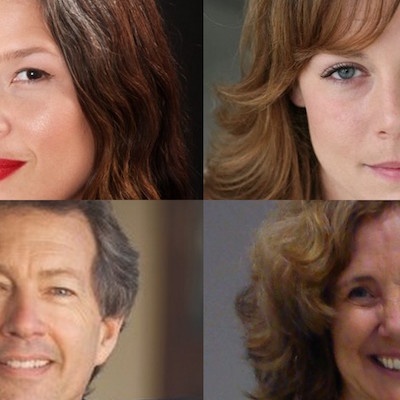
Sunday Feb 07, 2016
Sunday Feb 07, 2016
Broadcast on 6 February 2016 on KSCO AM 1080, KSCO 104.1 FM, KOMY AM 1340, and KSCO.com Live Stream.
It's A Question Of Balance radio show balances the intellectual with the creative, exploring whether we have more in common than divides us through thought-provoking conversations - out and about with people on the street on different topics, and in the studio with inspiring guests from the arts. Balance is not a compromise. Balance is truth distilled from many places creating cohesive understanding.
Check out podcasts of the different topics and arts guests at www.itsaquestionofbalance.com
In-Depth Arts Interview with Four Artists From the Inspiring Show Fire In The Heart

This week as her special guests from the arts Ruth Copland is pleased to be interviewing Deborah Allen, Brittney Buffo, Tom North, and Gina Rene from the inspiring show Fire In The Heart. Created and produced by director, producer, actress, writer, and screenwriter Deborah Allen, Fire In The Heart is a celebration of how the performing arts can be used to address trauma and recovery. Fire In The Heart features multiple artists showing how the arts can help us process, heal, and transcend traumatic events, whether they be in our own lives or the lives of others, while entertaining and enriching us at the same time. Fire In The Heart features professional performers from many music genres including hip-hop, gospel, classical, and opera, as well as film-makers, actors and poets, all of whom have used the arts in their own lives to address trauma and recovery from issues including substance abuse, violence, and major health issues. Artists include hip-hop artists The Luminaries, Carnegie Hall cellist Lisa Lancaster, recording artist Delores Burgess, and musical director and performing artist Stephan Terry. Fire In The Heart is designed as a way for the community to come together around what we are collectively experiencing and experience the arts as a powerful transformative lifeline, with the potential to be life-changing for some. Cabrillo College in California is presenting Fire In The Heart, as Cabrillo Theatre Arts’ 2016 Evening of World Theatre and Ruth Copland has four of the performers with her on the show - creator and producer of Fire In The Heart, Deborah Allen; film-maker Brittney Buffo; memoirist Tom North; and hip-hop artist, singer-songwriter, and story-teller Gina Rene.
For more info and to hear previous shows visit www.itsaquestionofbalance.com

Monday Feb 01, 2016
Monday Feb 01, 2016
Broadcast on 30 January 2016 on KSCO AM 1080, KSCO 104.1 FM, KOMY AM 1340, and KSCO.com Live Stream.
It's A Question Of Balance radio show balances the intellectual with the creative, exploring whether we have more in common than divides us through thought-provoking conversations - out and about with people on the street on different topics, and in the studio with inspiring guests from the arts. Balance is not a compromise. Balance is truth distilled from many places creating cohesive understanding.
Check out podcasts of the different topics and arts guests at www.itsaquestionofbalance.com
Out And About – Conversations with People on the Street about Questions That Matter: What happens if we characterize ourselves by our political party?

This week we consider ‘What happens if we characterize ourselves by our political party?’ If you are talking politics, are you likely to say ‘ I am a Democrat/ Republican/ Libertarian etc?’ In America it is common for people to characterizes themselves politically this way. By contrast, in the UK, for example, people will say ‘I support the Conservative party’ or ‘I vote for Labour’ or ‘the Liberals represent my views’. This may seem a small linguistic difference of expression but one mode of expression embodies our views, we are what we believe - ‘I am a Republican/Democrat’; the other maintains a distance between who we are and what we believe - ‘I support the Republicans/Democrats’. Could embodying our political beliefs be part of the reason the USA seems so divided? Does it make us feel more different from each other than we actually are? If we are what we believe then any dissent from our position feels very personal, which may affect how we receive and react to information. We may hold a range of views but if we need to self-identify in one political camp or another we may focus on and defend only the views that allow us to stay in that camp. What about Independents and ‘undecideds’? Are they as wishy-washy as they are sometimes portrayed or are they actually more accurately representing the complexity of political views on different topics by not identifying with one party?
What do you think? For more info on the show and to hear past shows visit www.itsaquestionofbalance.com
In Out And About we consider topics with local relevance and global significance. The idea is to get us thinking about the questions that affect us all - to stimulate new thinking, or clarify what we already feel. To hear how other people’s opinions may differ from or be similar to our own.
Version: 20241125
